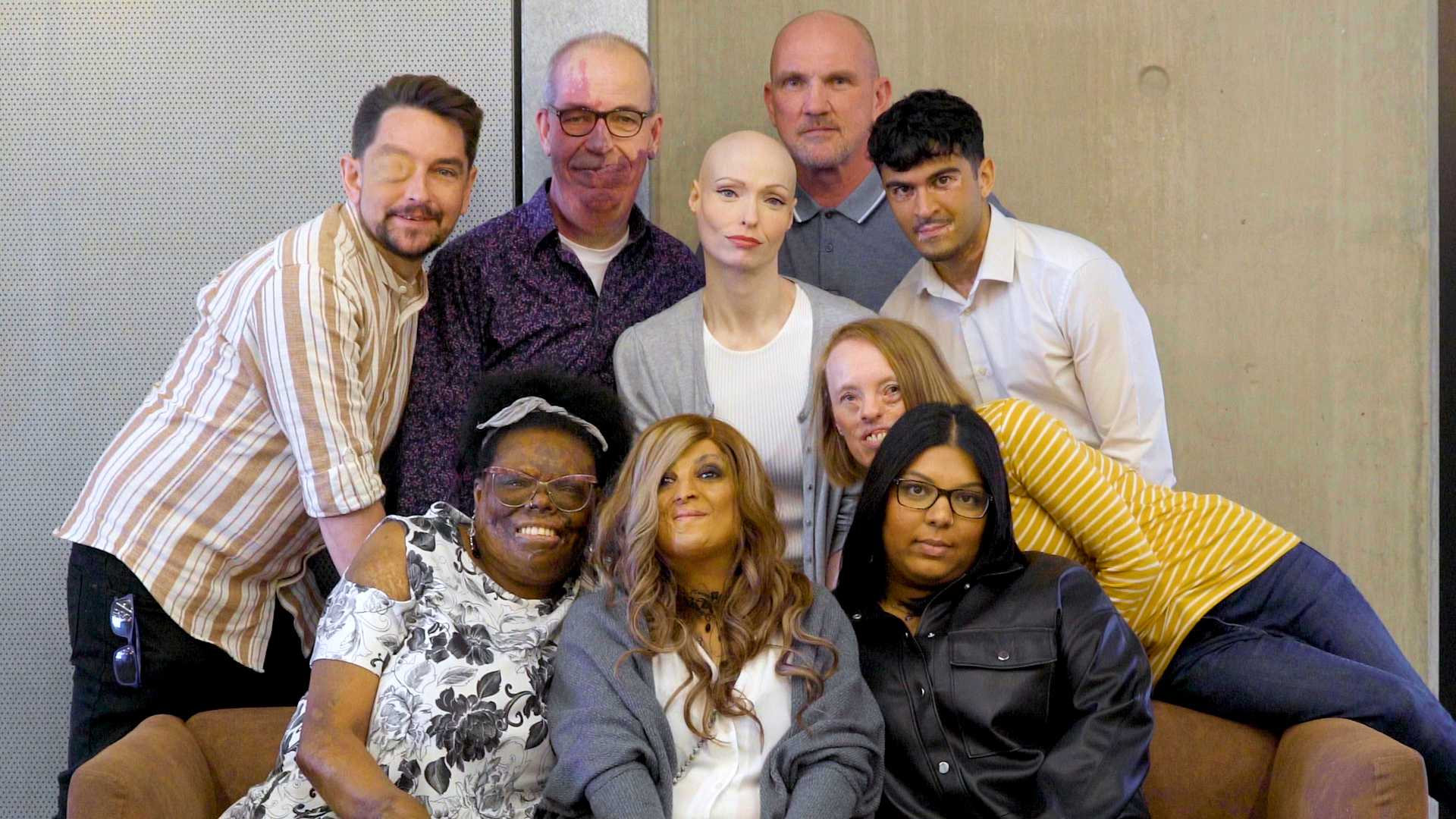Share our film on social media
Together we can spread positive representations of people with visible differences, helping to create the change people want to see - ahead of brands, broadcasters and businesses.

This year’s Face Equality Week – an event to raise awareness about the prejudice experienced by those with a visible difference - is 13-19 May.
Face Equality Week is a time to celebrate visible differences. As an annual event, the week is an opportunity for us to raise awareness of what needs to change so everyone with a visible difference or disfigurement can live the life they want to lead.
In Face Equality Week 2023, our campaigners and ambassadors were proudly being the role models they want to see more of, and saying, “This Is Me”.
No one should be left out, feel isolated or alone, or discriminated against because they have a visible difference. Yet our research into the lives of those who have a visible difference found that:
The media defines what’s normal. Unfortunately for people with a visible difference, that means we aren’t part of this definition. Until TV shows, films and advertising campaigns start consistently and positively representing people with a visible difference, we will struggle to break this stigma.
That’s why we joined forces, and as part of a global alliance of charities and campaigners, during Face Equality Week together we challenging the negative representations, outdated tropes and stereotypes that contribute to the harmful stigma that still exists around visible differences and disfigurements.
Our campaign film asked people why they might respond to someone with a visible difference in a certain way, and called on people to re-position their thinking and celebrate difference with us.
We believe everyone should be able to see themselves positively represented.
Our new research carried out by Focaldata clearly shows that the general public thinks that too, with more than three-fifths (61%) of adults in agreement that they would like to see more people with visible differences represented in popular culture.
Despite nearly one in five people across the UK self-identifying as having a visible difference, the research found that the general public had never, or not in the last year, seen someone with a visible difference:
While Face Equality Week was 15 – 19 May this year, you can still learn more about and celebrate visible difference.
Linking worth with our appearance is incredibly toxic. We need to see more people in the media who are proud to be exactly who they are and are succeeding because of it. It’s time everyone accepted difference as something to be celebrated rather than removed.
Together we can spread positive representations of people with visible differences, helping to create the change people want to see - ahead of brands, broadcasters and businesses.
Whether you make a one-off or regular donation, your support helps us to continue providing life-changing mental health and wellbeing services to people with a visible difference.
Keep up to date with all our campaign news, including ways to take action on issues like visible hate, anti-bullying and better representation.
Why not hold a Face Equali-Tea Party to promote acceptance, enjoy some delicious cake, and raise vital funds for Changing Faces?
Find out about what happened last year for Face Equality Week and what we achieved with our Stop the Stare campaign.
Our A World of Difference classroom and assembly resources have been created to help teachers deliver lessons about visible difference.
After developing alopecia, Zelda not only faced the loss of her identity, but also the assumptions of people around her.